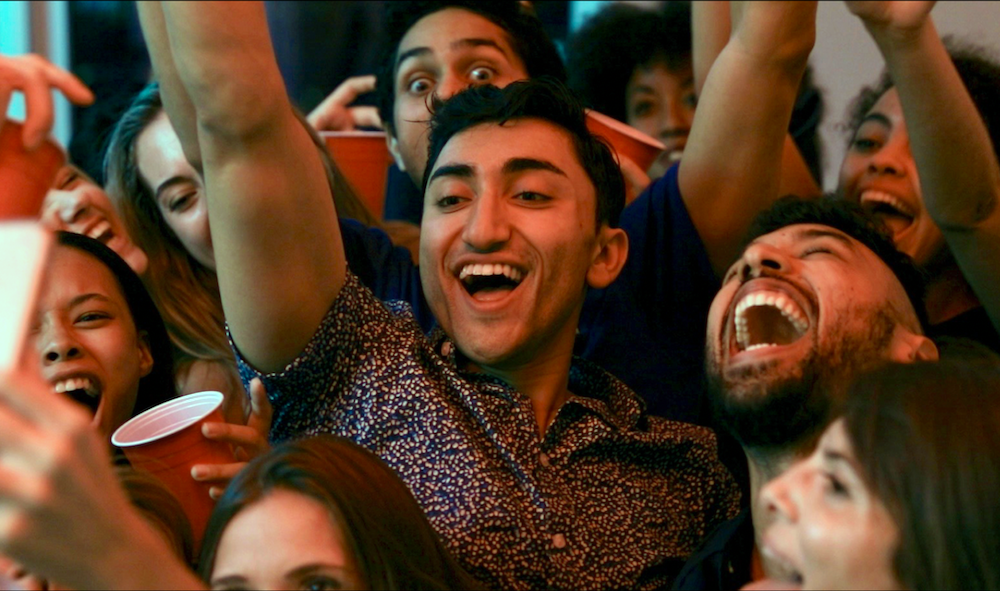Update as of July 25, 2019: Since the success of the pilot, the ‘Double Tap’ team has released three episodes on YouTube. If you support the work they’re doing, be sure to subscribe to their channel and follow them on Instagram to see more content in the future. Read our interview with the Double Tap team below.
Episode 1: ‘Bang’
Jay’s longtime girlfriend Meg abruptly dumps Jay and throws his routine life into disarray. Jay’s father encourages him to relax the old fashion way, and move on from the break-up.
Episode 2: ‘Swipe Up’
Jay moves to New York City with four new roommates after seeing Meg living her best life. Rita, a drug-dealing Instagram influencer, Nik, a too-good-to-be-true chef, and Paul, an ex-football star turned spirituality guru. Jay gets a huge opportunity at work to propel his career.
Episode 3: ‘Love Sick’
Rita tries to grow her side hustle in addition to her burgeoning follower base. Jay’s roommates push him to focus on the positives of living in the city and embrace the unknown.
The entertainment world has long been considered a space that focuses on the stories of white America. Rarely have there been attempts by major studios to place POC stories at the forefront. If we exist in a popular film or TV series, it has usually been on the periphery. Recently, there has been a strong effort to bring diverse stories to the table. “Crazy Rich Asians,” a story focused on the nuances of the East Asian American experience, garnered widespread critical acclaim and box office success. Melanie Chandra and Surina Jindal teamed up with writer Sameer Gardezi to create “Surina and Mel,” a series that examines the relationship between two Indian American best friends and their communities at large.
The project has already generated a loyal following and industry buzz solely off of a few trailers. Actor and writer Nick Vango hopes to push the envelop further with his new pilot, “Double Tap,” a project that chronicles the lives of four diverse roommates in the hustle and bustle of New York City. The pilot is positioned to be another noteworthy contribution to the growing culture of representative projects.
[RELATED: Why ‘Crazy Rich Asians’ Matters for South Asians, Too]
‘Double Tap’ Hopes to Fill a Gap
“Double Tap” is a dark comedy that highlights the story of Jay, a financial analyst who moves to New York City. The project focuses on Jay’s relationship with his eclectic roommates Rita (Collette Astle), Nik (Nikhil Saboo) and Paul (Paul Cooper). Rita is a drug-dealing Instagram influencer, Nik is a too-good-to-be-true chef, and Paul is an ex-football star turned spirituality guru. They may sound like a quirky group, but any New Yorker knows that such a disparate array of roommates is pretty normal in the city.
The idea for “Double Tap” arose out of the writers’ witnessing the dearth of representation of diverse stories in the popular media.
“We wanted to write something that was genuine to our experiences,” Vango says. “There’s a lot of space to tell more authentic stories from people of color, the LGBTQ community and people with different abilities.”
This project, therein, is Vango’s attempt to represent the historically under- and misrepresented. “We’re writing for characters that are grounded in truth,” he says.
[RELATED: #OnTheRise Graphic Designer Emmen Ahmed’s Artwork Wows Brown Hollywood]
A Group Effort
Vango emphasizes “Double Tap” is a very much a team effort. He says the early days of the show’s creation would not have been possible without the efforts of a number of some key contributors. He especially highlighted the work of Nikhil Saboo, who simultaneously helped produce “Double Tap,” while performing in “Mean Girls” on Broadway nearly every night, and Paul Cooper, who played an integral role in developing the storyline and plot for this series.
View this post on Instagram
#doubletap #doubletap2018 #doubletapsfordoubletap #tv #tvpilot #comedy #darkcomedy #televsion #actor
Vango and his team plan to submit “Double Tap” to pilot festivals and continue to work on creating more content.
“We have a ton of stories we want to tell,” he says, “And it would be great to team up with a production house to create more episodes.”
As for what Vango wants to do in the future professionally:
“Act and write more. A lot more.”





